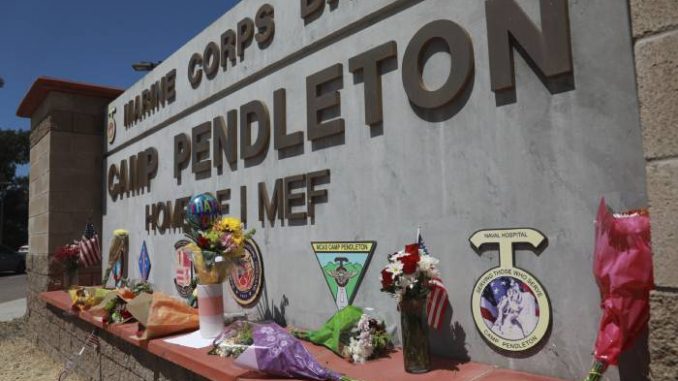
President Joe Biden warned that conditions in Kabul during the final days of the U.S. evacuation remain “extremely dangerous” and said his military commanders informed him during a briefing Saturday morning that an another attack is “highly likely in the next 24-36 hours.”
“I directed them to take every possible measure to prioritize force protection, and ensured that they have all the authorities, resources and plans to protect our men and women on the ground,” Biden said.
Thirteen U.S. military personnel were killed and 18 other American service members were wounded in a suicide bombing Thursday outside the gates of the Kabul airport, where the U.S. has been running its evacuation operation. On Friday, the U.S. launched a retaliatory strike that killed two members of ISIS-K, the Islamic State offshoot that has claimed responsibility for the attack.
Biden said the operation was led by U.S. Central Command leader Kenneth McKenzie and that it “was not the last” against the group responsible for the airport bombing.
“We will continue to hunt down any person involved in that heinous attack and make them pay,” Biden said.
Despite the threat of another terror attack, Biden said his military commanders had assured him they had plans to protect Americans on the ground and could complete the evacuation and drawdown missions.
As of Saturday, the U.S. had facilitated the evacuation of about 111,900 people since the Taliban swept to control of Afghanistan on Aug. 14. That includes 5,400 Americans — though an additional 350 U.S. citizens have told the State Department they are still seeking to leave the country.
The U.S. strike against members of ISIS-K injured a third member of the group, though Defense Department spokesman John Kirby said the strike didn’t “get us in the clear” and described the threat from the group as “still active.”
While Kirby said ISIS-K “lost some capability to plan and conduct missions,” a U.S. official said Friday night that the primary target of the attack didn’t have a direct link to Thursday’s assault in Kabul.
Reaper Drone
The official, who was granted anonymity to discuss the operation, said the target was killed by a Reaper drone while traveling in a vehicle. Kirby declined to name the people targeted or elaborate on their roles.
The latest strike marks at least the third time the Reaper, built by privately-held General Atomics, has been used in a high-profile attack. A Reaper firing laser-guided Hellfire missiles was used in a nighttime November 2015 attack in Syria that killed Islamic State terrorist Mohammed Emwazi, known as Jihadi John.
More recently, a Reaper fired two Hellfires during a night attack outside Baghdad International Airport in January 2020 that killed Iranian general Qassem Soleimani just after he arrived in Iraq.
Via Newsmax
